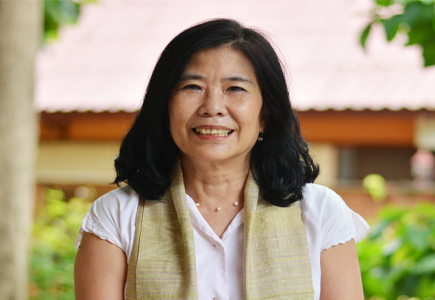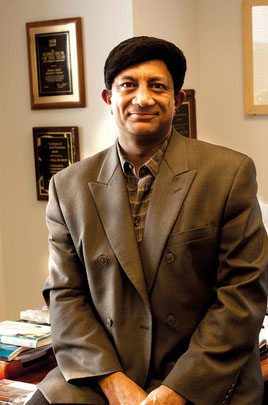Every year, World Mental Health Day on October 10 provides an opportunity to address, as a global community, one of the greatest personal, medical, and economic challenges of our time: the growing need to effectively intervene in and treat mental illnesses, which will afflict one in four people during their lifetimes.
Although mental illness is fast becoming the world’s most expensive disease—particularly because it afflicts so many young people at the beginning of their working lives—the illnesses remain both tragic and hidden. Tragic, because the rising rates of suicide in countries around the world underscore the pervasiveness of mental illnesses; last year, for example, suicide for the first time became the leading cause of death among teen girls. And hidden, because stigma keeps people from seeking help or getting adequate treatment in rich and poor countries alike, closing doors that might otherwise be opened to people who are suffering so desperately. Furthermore, in many poor countries, care may be nonexistent or totally inadequate.
Stigma is the first—and sometimes insurmountable—barrier that prevents people from getting help. This year the Dr. Guislain “Breaking the Chains of Stigma” award will reward the inspiring work of a psychiatrist, Chantharavady Choulamany, M.D., in the Lao People’s Democratic Republic. The proud sponsors of this award are the Dr. Guislain Museum in Ghent, Belgium, and the Janssen Pharmaceutical Companies of Johnson & Johnson. Extraordinarily, Dr. Choulamany, is one of only two psychiatrists in Laos, a country of more than six million people.
Dr. Choulamany has worked at all levels of government to help people with mental illnesses. Because of her tireless efforts, a mental health team composed of a doctor and two nurses trained by BasicNeeds—an international, non-governmental mental health organization for which Dr. Choulamany is Program Manager—now works in each of the country’s 17 provincial hospitals. In addition, to fight stigma, Dr. Choulamany has trained Buddhist monks so they can reach the mentally ill through not only prayer, but counseling. Her work is in the best tradition of Dr. Joseph Guislain himself, who was the first Belgian psychiatrist to base his treatments of the mentally ill on science. Dr. Guislain’s compassion and patient advocacy still inspires long after his death in 1860.
The Dr. Guislain Museum is dedicated to educating the public, addressing the misunderstandings surrounding mental illness, and encouraging open discussion.
Like Dr. Guislain, Dr. Choulamany has been tireless in fighting stigma. One estimate suggests that she has helped more than 8,000 patients and families. The Dr. Guislain award will provide Dr. Choulamany with $50,000 to help further her work to reduce stigma and help people with mental illnesses in Laos. The ceremony to honor her, took place, fittingly on World Mental Health Day, October 10, in New York City.
In this regard, World Mental Health Day is a particularly important day of reflection. It focuses global awareness on these devastating illnesses, reminding us all of their impact and the suffering they cause for patients as well as for their families. Janssen’s ongoing sponsorship of the Dr. Guislain Award continues our company’s 50-year commitment to finding solutions for mental illnesses and working to respond to community needs, regardless of whether that community is local or global. Our work in mental health was started by Dr. Paul Janssen, the founder of Janssen Pharmaceuticals and a pioneer of many important scientific approaches to treating serious mental illnesses. The neuroscience research that my team carries out today builds on the foundation of his work, as does our global Healthy Minds program, which sponsors and supports research about mental illness and community mental health programs and activities.
For too many, lack of first-hand knowledge about mental illness coupled with inadequate support in coping with it is overwhelming. Three-quarters of those who suffer from mental illnesses develop symptoms by age 24. Yet, strikingly, only one-third of those suffering from mental illness worldwide receive treatment. Lack of treatment, in turn, also often leads to disability and lack of self-sufficiency. The lost income from such individuals is just one reason why the World Economic Forum estimates that the economic impact of mental illness will total more than cancer, diabetes, and respiratory illnesses combined by 2030. And the cost of human suffering that these illnesses cause is, of course, immeasurable.
With regard to depression in particular, it is notable that not only is this illness the leading cause of disability worldwide, but depression in pregnant women can also affect the development of their unborn children, with continuing effects in infancy and early childhood. Because of the stigma that keeps families and patients alike from openly discussing the disease, it is perhaps not surprising that 30 to 40 percent of those who care for someone with a mental illness themselves suffer from depression and anxiety. The sympathy and support that many would expect if their loved one developed a chronic physical illness are often replaced by silence, isolation, and fear when the illness involves a disease of the brain. Stigma makes everything about mental illness worse.
So, on World Mental Health Day, as we celebrate the accomplishments of advocates and leaders such as Dr. Choulamany, our challenges nevertheless remain clear. We must push back against the shame that so unfairly surrounds a diagnosis of mental illness by showing our support, by talking about mental illness openly, and by encouraging others to do the same. It is the only way that we, together, will help weaken the chains of stigma—one link at a time.
Read more about our focus in neuroscience and mental health.





